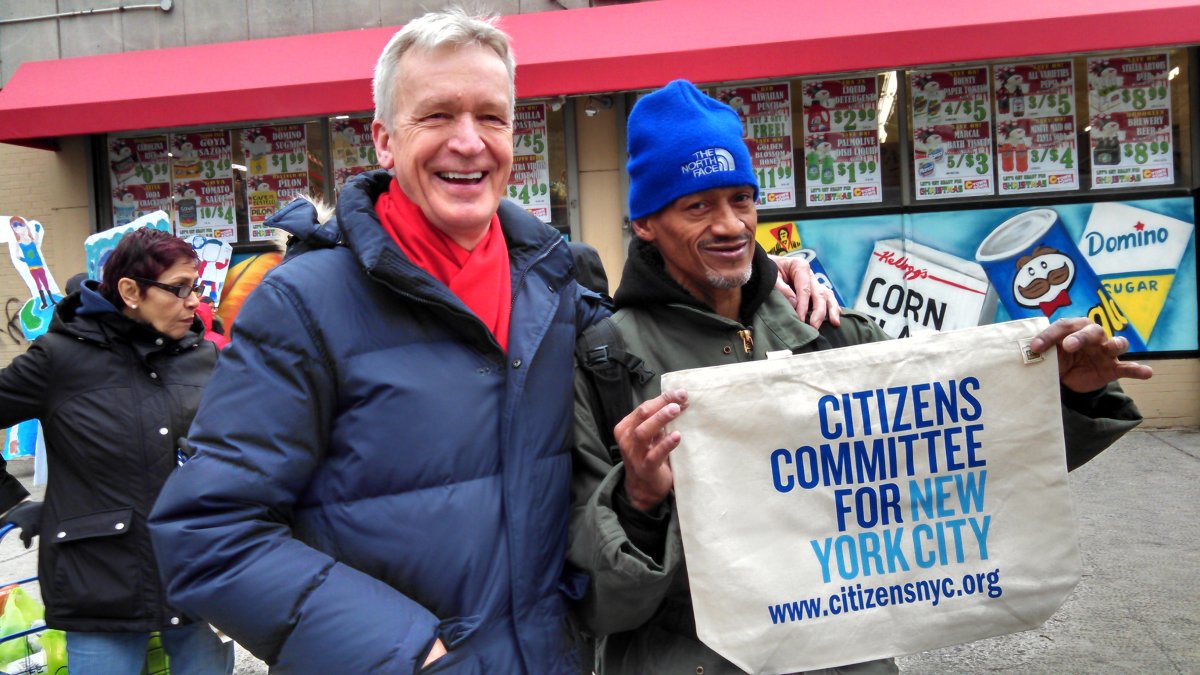
BY DENNIS LYNCH | A contentious battle is brewing between city and state lawmakers as a state bill reversing the city’s plastic-bag fee initiative has passed the state Senate and is now in the Assembly.
The city legislation would mandate that retail and wholesale stores charge customers “at least 5 cents for each plastic, paper or cloth carryout bag provided,” and is set to go into effect on Feb. 15, according to the city’s Department of Sanitation.
Those in favor of the surcharge argue that state government has no right to override a bill passed by a local government that only affects residents of that city, plus that reducing disposable bag usage would help the city financially and environmentally.
More than 10 billion plastic bags are thrown away each year, clogging storm drains and finding their way into landfills, according to state Senator Brad Hoylman, who lambasted his colleagues in the Republican-majority Senate for passing the blocking bill late last week. That bill passed 42 to 18, with only 13 senators from New York City in favor.
“Most of the people voting for this bill do not represent New York City,” Hoylman said. “This is a nullification of the wishes of a legislative body representing 8.5 million people.”
The sponsor of the state bill to override the bag fee argued last week that state law prohibits local governments from establishing their own taxes. However, the “bag fee” is not a tax in law or in practice, because the city would never see a single nickel: The store that charged the fee would keep it.
The Senate bill prohibits any city with a population of more than 1 million — New York City is actually the only one in the state — from imposing any “tax, fee or any other charge” on any “plastic, paper or other bag or carrying container provided by a retail store.”
Still, though, state Senator Simcha Felder — a Borough Park Democrat who caucuses with state Republicans — regularly calls the fee a tax. Felder contended in a press release following the Senate’s passage of its override bill, that the city’s measure would disproportionately and negatively affect middle- and low-income New Yorkers. He accused Mayor Bill de Blasio of “shaking down” city residents through the bag bill. He has also called reusable bags a health issue, because E. coli and salmonella bacteria can contaminate the bags’ fabric and thus cross-contaminate foods.
Felder has led the charge against the bill since the City Council narrowly passed it in a 28-to-20 vote in May. The Council wanted to implement the fee in October, but postponed it until next month after the state Senate passed Felder’s first bill to override it. The delay was to allow the Council and Assembly to “work together on a solution,” according to Assembly Speaker Carl Heastie. That solution never came. Felder reintroduced his bill.
Twenty-six of the Assembly’s 150 members have signed on as co-sponsors of the Assembly version of the Senate bill as of Wed., Jan. 25. Newly elected Assemblymember Yuh-Line Niou, a Democrat representing Lower Manhattan, is not one of them. Niou acknowledged that a fee on disposable bags “could have serious impacts on seniors and families on a fixed income.” However, she called the state bill “typical Albany overreach.”
“New York City has the same right as other municipalities to set its own environmental policies,” Niou said, “and Albany imposing its will while ignoring similar policies in other locations reeks of an unfair and unjustified double standard.”
The law exempts from the fee anyone buying goods with the Supplemental Nutrition Assistance Program (SNAP) or the Special Supplemental Nutrition Program for Women, Infants and Children (WIC).
The Department of Sanitation plans to hand out roughly 400,000 free reusable bags from Feb. 15 to April 30 this year.
As to how the Assembly will vote, Hoylman is hoping for the best.
“The Assembly typically saves New York from wrongheaded, ill-thought-out legislation passed by the Republican Senate, like this,” he said. “It would be a monumental travesty to overturn a proven environmental measure that reflects the will of the duly elected local legislative body of 8.5 million people — without so much as a legislative hearing.”
































